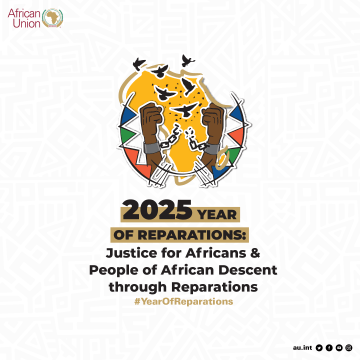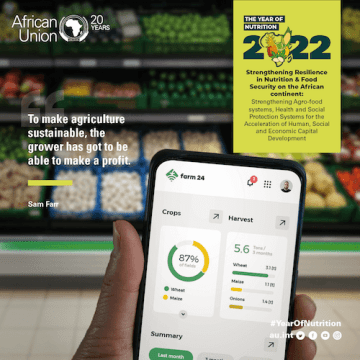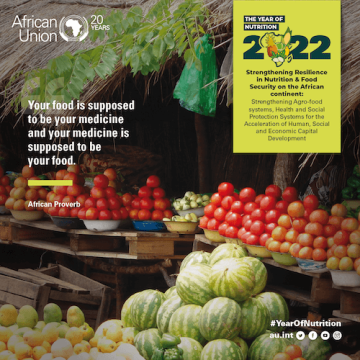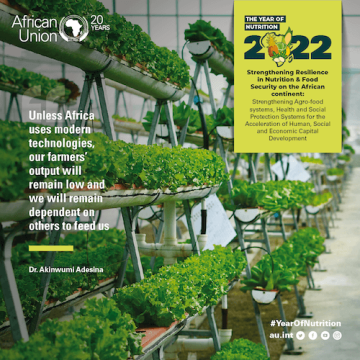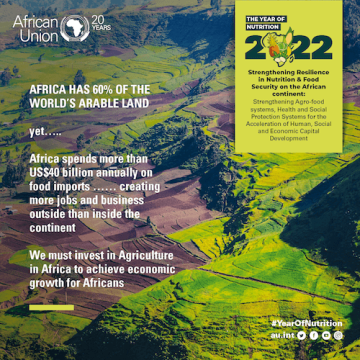Accra – 30 July 2025 – The African Peer Review Mechanism (APRM) Continental Secretariat officially launched the Africa Governance Report 2025 (AGR25) on Natural Resource Governance in Africa. The launch took place during the 13th African Union (AU) High-Level Dialogue (HLD) held in Accra, Ghana on 29–30 July 2025. The report was developed in application of Decision Assembly/AU/Dec.9(XXXVII) of the 37th Ordinary Session of the AU Assembly, tasking the APRM to produce the fourth Africa Governance Report, presented at the 38th Ordinary Session of the AU Assembly of Heads of State and Government, held in February 2025 in Addis Ababa, Ethiopia.
The launch of the AGR25 provided a platform to engage a wide range of stakeholders on the pressing issue of natural resource governance. Participants included representatives from the Africa Governance Architecture (AGA) Platform, AU organs and institutions, members of the AU Permanent Representatives Committee on Human Rights, Democracy and Governance (HRDG), officials from the Republic of Ghana, Civil Society Organisations (CSOs), youth and women’s groups, development partners, the media, academia, think tanks, research institutions, and members of the African diaspora. Their presence reflected the shared interest in finding sustainable and inclusive approaches to Africa’s natural wealth.
Setting the tone for the event, H.E. Wilson Almeida Adão, speaking on behalf of the AGA-APSA Platform at the political level, commended the APRM for producing a timely and relevant report. He highlighted the persistent challenge facing many African economies: the continued export of raw materials with limited value addition. He called for stronger governance systems to harness the continent’s vast resources effectively and urged AU Member States to embrace the AGR25’s recommendations as a pathway to economic transformation and to empower their citizens through improved resource management.
His message was echoed by other distinguished speakers, including H.E. Ambassador Aly El-Hefny, Chairperson of the APR Panel of Eminent Persons, and H.E. Ambassador Marie Antoinette Rose-Quatre, CEO of the APRM Continental Secretariat.
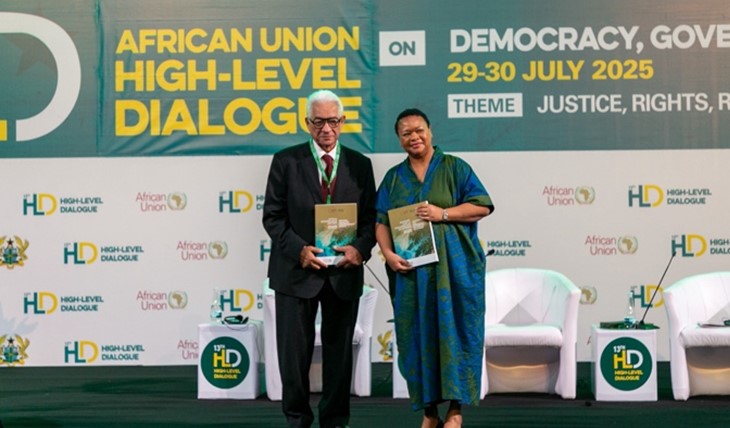
Ambassador El-Hefny extended his gratitude to all contributors, notably the AGA Platform, APRM Participating States, including Uganda, Senegal, Seychelles, and Zambia, which served as case study countries, and the Deutsche Gesellschaft für Internationale Zusammenarbeit (GIZ) for its technical support. He emphasised that the AGR25 builds on insights from the 2023 report on Unconstitutional Changes of Government, which highlighted weaknesses in public sector accountability and economic governance. In this context, he reiterated the APRM’s unique role as a home-grown African mechanism for advancing governance reform.
The theme of contextual transformation was further developed by Ambassador Rose-Quatre, who delivered a powerful address on the implications of global and economic shifts for Africa. Linking back to the Report’s central theme, she explored how these broader dynamics affect natural resource governance across the continent. Her address traced the political economy of natural resources in Africa, highlighting how both domestic policy weaknesses and external governance frameworks constrain the continent’s ability to extract full value from its natural wealth.
Drawing directly from the AGR25’s findings, Ambassador Rose-Quatre mentioned the scale of the challenge: although Africa holds 30 percent of the world’s known mineral resources, it retains just 10% to 15% of the value generated from them. At the same time, the continent’s 65% share of global arable land and its underutilised blue economy present vast untapped potential. She noted that the blue economy alone could contribute USD 405 billion and create 57 million jobs by 2030. These figures, she argued, speak to the urgent need for improved governance systems and to translate resource abundance into inclusive and sustainable development outcomes.
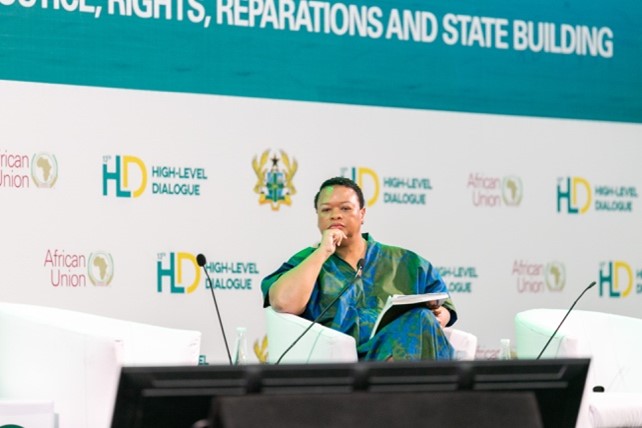
In closing, Ambassador Rose-Quatre invited participants to reflect on a key question: Why has Africa not been able to gain significant dividends from its natural resources for sustainable socio-economic development, peace, and security? This question lies at the heart of the AGR25, which puts forward practical and forward-looking recommendations. These are directed at national governments, AU institutions, regional bodies, and development partners to ensure that natural resource governance becomes a cornerstone of Africa’s transformation agenda.
For media inquiries or further information, please contact the APRM Continental Secretariat at info@aprm-au.org.
@APRMorg – X
www.aprm.au.int




